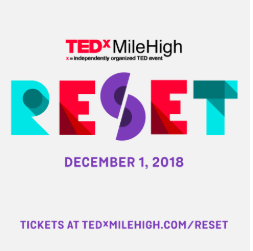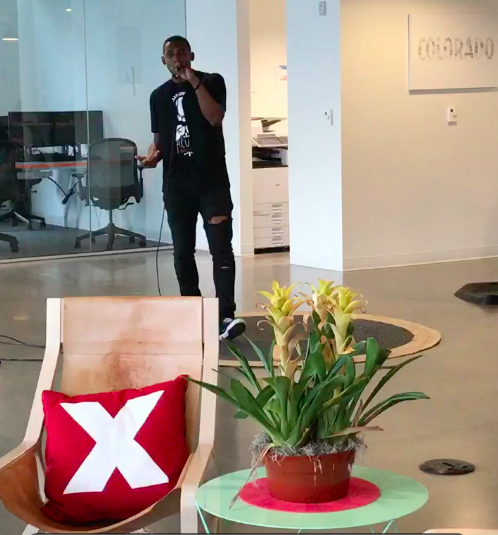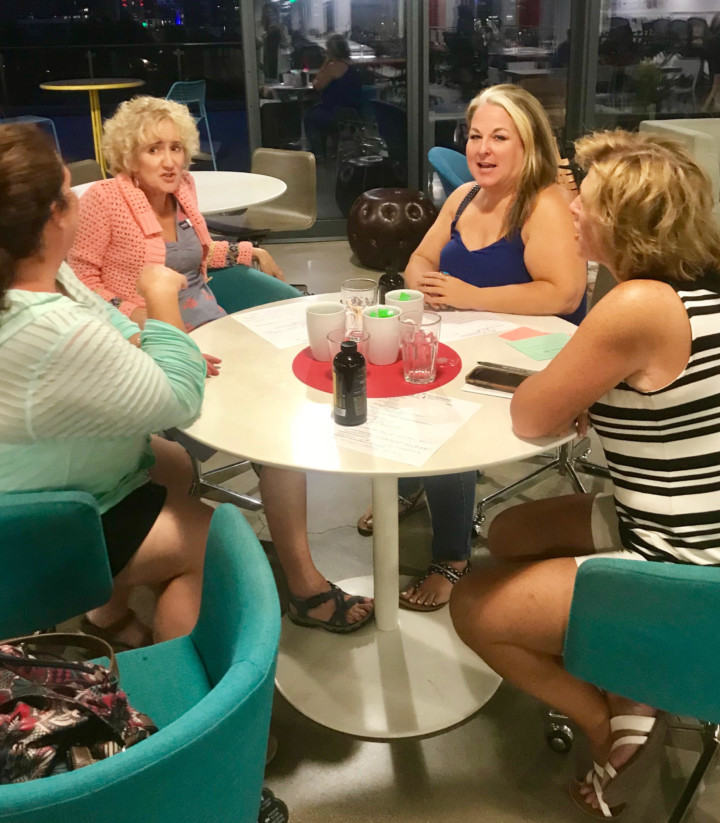Interested in attending RESET on December 1?

Let’s talk about implicit bias.
Imagine you’re walking down the street, and you see a man walking towards you. He is tall and has dark hair. He is wearing slacks, a dress shirt, and a tie. He carries a briefcase with one hand and tips his hat to you with the other.
Who is this man you’re imagining? What is his race & ethnicity? How much money does he make? What does he do for a living? Does he have kids? What is his highest level of education? What is his name?
The answers that come to your mind could be either the same or different than someone else’s. Nonetheless, the thoughts, feelings, and reactions you had in response to the description of this man alone are important to note. Your initial thoughts and judgements are implicit biases, and we all have them. When we look at someone and make a judgement, it is either based on what we see in front of us, or what we’ve been conditioned to react to. We are letting our implicit biases run the show.

Michael Acuna a.k.a “ILL Se7en,” hosted a TEDxMileHigh Adventure on Wednesday, August 1st. He challenged us to bring awareness to our implicit biases through spoken word, activities, and conversation.
SPOKEN WORD
Acuna started off the evening sharing a few spoken word pieces.
“The creative spirit is something that frees us, and told us how he shaped much of his identity through hip hop, spoken word, and other creative endeavors,” Acuna said.
During the Race & Identity Adventure a couple months back, Acuna led an interactive activity called “I am…I shall be…I choose to be…” This allowed a way for attendees to start creating their narrative, and to begin to be intentional with the story and identity that they share with the world. Creativity is also a way to challenge that which has become mundane and antiquated.
“Whenever we confront something that makes us uncomfortable we become a little smarter.”
– Michael Acuna a.k.a ILL Se7en
IMPLICIT BIAS WORKSHOP
Acuna and his co-facilitators, Asiya Mustefa, and Nina Horton, then moved onto the main workshop session. They broke up the attendees into six groups. Each group was given a photograph of a person. They were instructed to create a narrative of the person in the photograph their group was given. Decisions about what their name was, what profession they held, where they were from, whether they had kids or not, if they’d had run-ins with the police, their race and ethnicity had to be agreed upon by the group.
After this person’s narrative was created, Adventurers took turns and shared the narrative with the group. The evening took an interesting turn when Acuna revealed that although the six different groups created six different narratives with the six different pictures, there were actually only three people total that were photographed. Two of each of the photographs were the same person, just differently dressed.
This was interesting to note because each of the narratives Adventurers created as a group were different. They were in a way tied to the appearance of the person in the picture. Attendees let implicit biases influence the way they crafted the narratives for these individuals.
CHALLENGE THE NARRATIVE WITH CREATIVITY
When it comes to challenging the narratives around us, there is no better way than through creativity.
John Maeda said it best, “Creativity is courage. The world needs more fearless people that can influence all disciplines to challenge their very existence. Creativity is reflection aimed not at yourself, but at the world around you.”
Repeated narratives create suspecting truths, but we don’t have to continue to give into that idea so easily anymore. Implicit biases are learned behaviors, which means they can just as easily be unlearned. There is not a single person in our world who doesn’t possess many narratives. Humans are dynamic and spirited, and it’s narrow minded to think of people as just one thing, or to brand them with a single identity.
With an open mind, we can challenge ourselves to question the assumptions we make about people. We need to think twice about the narratives and identities we give other people; especially those we don’t know. All of us are judgemental, and that’s not necessarily a bad thing. What is problematic is when we let these judgements influence our actions, or how we treat someone else.
Identifying and acknowledging our biases is not easy, but it plays an important role in the way we interact with those around us. Bringing these things into awareness can help disable them, and can help change things so that they no longer have power to affect you and me. It’s also important to note that implicit biases are not only about race & ethnicity, but also social class, gender roles, age, political affiliations, sexuality, and more.
We need to be more creative and intentional about the ways we challenge our biases and preconceived notions. We need to talk about them, in safe spaces. In this way, we can all be a little more free and a little more understanding, and we can start seeing people for who they actually are instead of who we think they are.



















